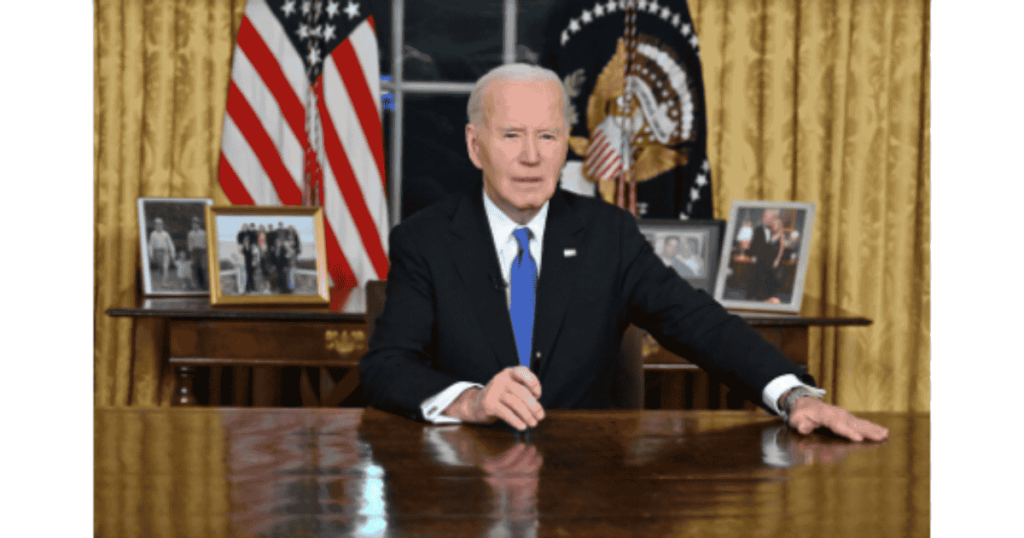The Biden Pill Penalty is a government policy that was introduced during President Joe Biden’s time. According to this policy, the government can control the prices of small-molecule medicines (like tablets and capsules) just four years after they come to the market, while larger and more expensive medicines (like injections and IV treatments) face price controls only after nine years. This policy has become a flashpoint in debates over the future of American healthcare and pharmaceutical innovation.
Members of the opposition claim that this pricing regulation policy produces contrary results compared to its original goal of drug price containment. It simultaneously suppresses medical research advances, pushes up healthcare expenditures, and restricts cost-effective treatment availability.
Investment in Small-Molecule Drugs Plummets
According to this rule, pharmaceutical Companies maintain their profits when they produce pills because simple medications trigger short-term profit declines. Pharmaceutical companies direct their funding resources away from developing user-friendly pills because they shift their efforts toward the creation of medicines through injections and IV-based medicines.
A recent research reveals biologic drugs now receive funding ten times larger than small molecules in a sudden shift from traditional spending patterns.
Pursuing a different path from small-molecule innovation has the potential to produce disastrous effects. Researchers from the University of Chicago predict the United States will forfeit approval of 79 new treatments during the following two decades, which would deprive society of 116 million years of expected life duration.
The present warning from health experts suggests that healthcare costs would grow due to patient redirection from clinic-based, expensive biologic treatments to home-based, inexpensive pill medications. Chronic condition patients might need to increase out-of-pocket spending, which results in decreased access to therapeutic medicines for cancer, as well as diabetes and heart disease treatment.
Economic and Global Implications
The Biden Pill Penalty’s effects could ripple far beyond healthcare. Andrew Langer, Director of the Coalition Against Socialized Medicine, warns that reduced access to affordable treatments could lead to more sick days, earlier retirements, and a weakened American workforce — potentially impacting U.S. economic productivity.
The consequences arising from the Biden Pill Penalty will extend far past health care boundaries. According to Andrew Langer as Director of the Coalition Against Socialized Medicine decreased availability of affordable treatments threatens to diminish American workforce performance.
The Chinese pharmaceutical industry moves toward rapid advancement during this period. Since 2021, both Chinese pharmaceutical innovation and small-molecule drug development have experienced nearly double growth, resulting in 76% of small-molecule drug products from Chinese companies. Chinese pharmaceutical companies are gaining momentum to become the world leader in developing new drugs, at the same time that the United States decreases its engagement with small-molecule research.
We could soon see China overtake the U.S. as the global leader in pharmaceutical drug development,” Langer warned.
If this trend continues, and the Biden Pill Penalty isn’t repealed this year
- Patients will have fewer easy-to-take medicines available.
- More expensive and complicated treatments (like injections or hospital visits) will become necessary.
- America’s leadership in developing new medicines could weaken.
- China could move ahead of America in creating new treatments.
Political Efforts to Repeal the Penalty
Although aware of the danger, Republican congressional representatives have begun implementing new measures. Senator Thom Tillis (R-NC), together with Representative Greg Murphy, M.D. (R-NC), introduced legislation that seeks to provide similar protection to small-molecule medications as biologics receive. The objective of their effort is to bring back investment incentives as well as protect America’s healthcare innovation leadership position while ensuring patients maintain access to both affordable and convenient treatments.
According to Rep. Murphy, American leadership in innovation produces world-class operational breakthroughs and lifesaving medical research toward disease elimination and cancer treatment. The ‘pill penalty’ proposal works against advancing progress because it hinders price reduction in medicines and blocks vulnerable patients from obtaining vital treatments.
Now, some American politicians (especially from the Republican party) want to cancel the “Biden Pill Penalty” so that:
- Companies can start making simple, easy medicines again.
- Medical treatments can become more affordable.
- America can stay number one in healthcare innovation.
Conclusion
Through its intention to reduce medication costs, the Biden Pill Policy threatens to create harmful effects that discourage innovation and escalate healthcare expenses and decrease patients’ access to crucial drugs, and diminish America’s pharmaceutical development worldwide. Patients, together with the economy, may endure significant effects from the present trend toward complex, high-cost therapeutic developments while critical funding moves from simpler drug research. The Chinese pharmaceutical sector is continuously making rapid progress, thus intensifying market competition. Small-molecule development incentives face repeal opposition based on their critical role in retaining affordable healthcare accessibility, along with American pharmaceutical leadership status. People currently make critical choices that will direct healthcare evolution across different generations.




This pricing regulation policy seems to have unintended consequences that could harm both medical innovation and patient access to affordable treatments. It’s concerning how it shifts focus from pills to more expensive injection-based medicines, which might not be as accessible to everyone. The prediction of losing 79 new treatments over the next two decades is alarming—how can we justify such a loss in potential medical advancements? The impact on chronic condition patients, who may face higher out-of-pocket costs, is particularly troubling. If the U.S. loses its leadership in pharmaceutical development to China, what does that mean for global healthcare standards? Do you think there’s a way to balance price containment with encouraging innovation and accessibility? This policy seems to be creating more problems than it’s solving—what’s your take on it?
The opposition’s claims about the pricing regulation policy raise some critical concerns. It’s alarming to think that a policy aimed at controlling drug prices could inadvertently stifle medical innovation and increase healthcare costs. The shift in funding from small-molecule drugs to biologics seems drastic, and the potential loss of 79 new treatments over two decades is a staggering prediction. If this trend continues, it could have long-term consequences for patients, especially those with chronic conditions who rely on affordable medications. The idea that the U.S. might lose its leadership in pharmaceutical development to China is particularly concerning. What steps can be taken to balance price regulation with the need for continued medical innovation? It feels like there’s a need for a more nuanced approach to avoid these unintended consequences.
We’ve integrated libersave into our regional voucher system. It’s amazing how easily it allows us to bundle various providers on a single platform.
This pricing regulation policy seems to have unintended consequences that could harm both medical innovation and patient access to affordable treatments. It’s concerning how it shifts focus away from cost-effective pill-based medications to more expensive biologic drugs. The prediction of losing 79 new treatments over the next two decades is alarming, especially considering the potential loss of 116 million years of life. How can we balance the need for affordable medications with the necessity of funding medical research? The shift in pharmaceutical funding could also impact the U.S.’s position as a global leader in drug development, which is a significant concern. What steps can be taken to reverse this trend and ensure that patients have access to both innovative and affordable treatments?
We’ve integrated libersave into our regional voucher system. It’s amazing how easily it brings together various providers on a single platform.